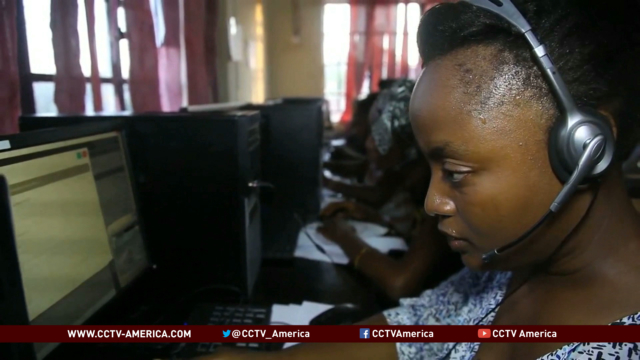Sierra Leone has had a special emergency Ebola number for months now. It was put in place when the Ebola crisis first started to rage out of control. The call center is manned 24 hours a day, seven days a week. CCTV’s Nina DeVries reports on some of the challenges for first responders.

The people who work at the call center get paid about $10 per shift. They’re often the first people to hear about an Ebola-related problem, whether it be about suspected new cases or dead bodies. Many said they felt compelled to do something during the crisis.
“I heard on the news that people were dying, so many places,” recalled first responder Victoria Dyka. “In Kailhun, I heard about a family where everyone had died, and that urged me, that I should help.”
The first responders have to alert health workers and surveillance teams on Ebola-related matters, and the job can be quite stressful. This is especially true when dealing with a frightened populace.
“We here at 117 are not ones responsible to go and take bodies, the sick people,” explained, Dyka. “But they [the public] think we are the ones responsible for that, so they will get mad, say we are not doing our work. We have to understand that they are going through too much pressure. We have to be wiser with them , speak nicely, and some will eventually calm down.”
The call center gets about 1,200 calls a day on average and many are now coming from Freetown as cases are on the rise there. Even in the middle of this crisis, some aren’t taking the call center seriously.
“We are overwhelmed with calls, especially with the prank calls. We are getting a huge number of prank calls,” said the call center manager, Reynold Sensel. “But these first responders won’t let that distract them from the real reason they’re here.”
Organisations like the UN have been calling for a more coordinated response to Ebola, and call centers will prove crucial as part of that response.
 CGTN America
CGTN America
